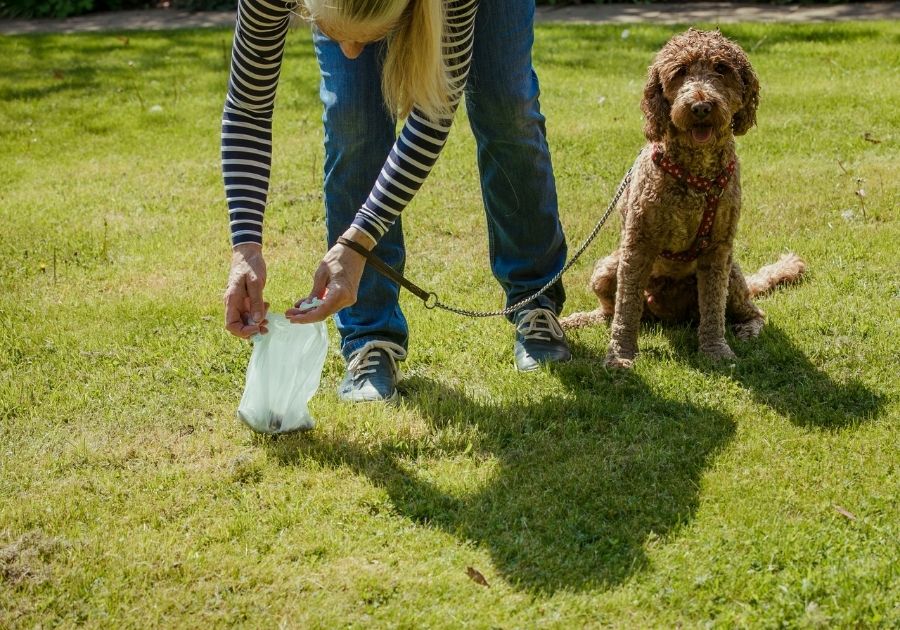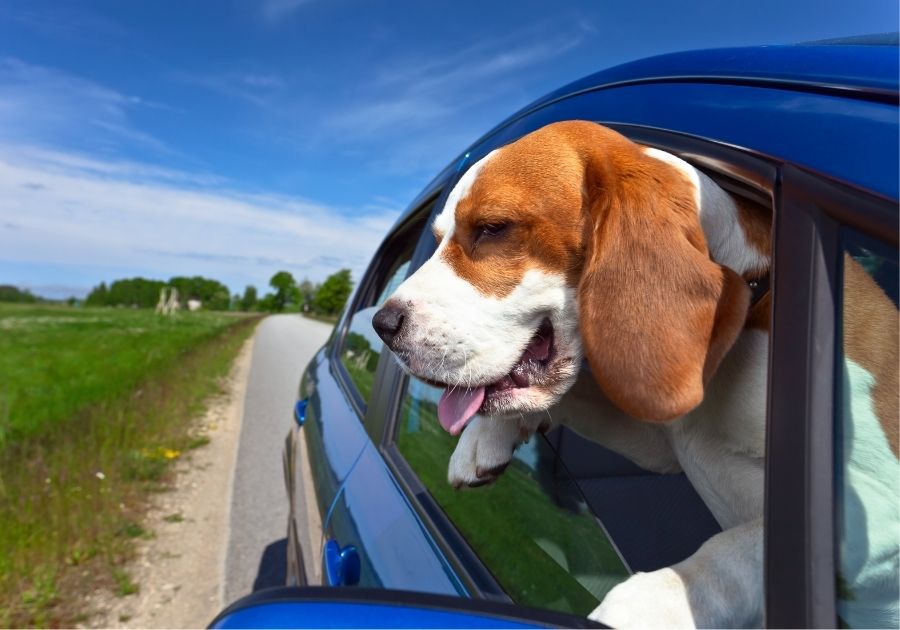There are several specific dog laws in the United Kingdom.
The aim of these UK dog laws is to make sure you, your dog, and other people or animals are kept safe and happy.
Laws and regulations regarding dogs do not just check criminal actions involving them, they apply to many segments of your dog’s day-to-day life.
As there are lots of enacted regulations that apply to you as a dog owner, which you might be ignorant of, we’ve taken care to discuss some of the more important ones.
As laws are constantly getting updated, it is important you check with your local directory what regulations are currently in place in your area.
Are you concerned you might have broken a law, or do you feel you need legal advice?
Speak to a specialist dog lawyer to receive a greater piece of information.
A Note on UK Dog Laws
The capacity to regulate dogs originates from a state’s “police power,” which allows it to pass laws to protect its residents.
This jurisdiction allows states to enact laws that affect their citizens’ health and general well-being.
This power is then delegated to local governments (cities, towns, and counties) either explicitly or implicitly (the state provides in its laws that the power of a city to regulate is not restricted).
In any case, the authority to regulate household animals such as dogs are typically unrestricted.
State legislation is one of the most significant constraints on a local government’s ability to regulate dogs.
Preemption is a legal notion that states that a higher law (state or federal) preempts or overcomes a local law that deals with the same issue.
Laws may control the same subject at the same time, or both laws may regulate the same subject without conflict.
The issue emerges, however, when a local unit attempts to govern something that state law has either stated is only a state matter.
Because it attempts to regulate an exclusive state region, the municipal law will be declared unlawful by a court.
When it comes to dogs, this is particularly common when a local government passes legislation in an area that is severely controlled, such as processes regarding dangerous dogs.
Most states require that owners get notification of their pets’ impoundment before they are killed.
This might be in the form of a written notification sent to the owner or a notice posted at the animal control facility.
However, if a dog is found without dog tags or other identification, it might be impossible to track down the owner, much alone notify him or her.
Getting a Puppy from Breeders

Breeding laws are safeguards to ensure pups have a great start in life and also that their parents maintain great health and well-being.
Breeding three or more litters of dogs per year or advertising them for sale necessitates that breeders be licensed.
If instead, a breeder sells one or two litters of pups in a year, whether they would need a license to operate depends on whether the local authority decides that they are in a business of advertising and sales.
If you are buying a puppy, check to see if your breeder is licensed.
More often than not, breeders provide their license information when advertising.
Licensed breeders would cater to all the daily needs of their breeders as well as see to the socialization of the new pups.
They also make sure to have new puppies checked regularly to safeguard against any probable health complications as well as provide them with toys and exercise.
Breeders are also refrained from selling sick puppies or puppies less than 8 weeks old.
A breeder without a license or one transgressing the terms of such can be reported to your local council.
If found guilty, they could be fined or face jail time.
Currently, in the UK, puppies under 6 months old cannot be bought from a middleman.
Rehoming centers or licensed breeders must be responsible for their sales.
Any transgression of this regulation would induce severe fines on both sides as well as a possible option of jail time.
Law: Section 1, Breeding of Dogs Act 1973
Cleaning Up After Your Dog

A fair portion of UK dog laws applies to dog fouling.
Regulations demand that you tidy up public spots or wherever else your dog might have pooped.
Local councils enforce these regulations by introducing Public Space Protection Orders (PSPOs).
In public areas with PSPOs, having your dog foul without a justifiable reason gets you charged up to £1,000.
Usually, such areas have signs to indicate this.
Generally, It’s a good habit to tidy up after your dog has fouled regardless of PSPO or otherwise.
Apart from being a sore sight, poop not cleaned up are potential breeding grounds for harmful parasites.
Law: Sections 59 – 75, Anti-social Behavior Crime and Policing Act 2014
Breed Specific Legislation

Without an exemption order, some dog breeds cannot be legally bred, sold, or rehomed in the UK. They include:
- Dogo Argentino
- Fila Braziliero
- Pitbull Terrier
- Japanese Tosa
If your dog resembles a banned breed and there are concerns in your neighborhood perhaps, the police will consult with an expert to verify if they are indeed illegal.
Illegal breeds in your care will necessitate that the court grants you an exemption order.
To qualify for one, your K9 will need to pass a behavioral assessment to ascertain whether or not they are dangerous.
Exempted dogs must be muzzled any time they are in public. You are also expected to take out third-party insurance on your K9.
A dog judged, on the other hand, to be a danger to society will be euthanized.
Law: Section 1 and Section 4B, Dangerous Dogs Act 1991
Dogs Out of Control
UK dog laws enforce that you keep your dogs close to you at all times and on a lead in public.
It is criminal to have your dog out of control.
If your dog chases an animal or even a person around to the extent they get physically injured, your K9 will be judged ‘dangerously out of control’ and you could get charged as the owner.
Getting charged means that you get fined and you pay for compensation.
When the extent of injury caused to a person is so severe that they need hospitalization, your dog will be seized by the police and may be humanely extirpated.
Dog Control Orders established under the Clean Neighborhoods and Environment Act in 2005 have been introduced by many local councils, for offenses including:
- Failure to keep your dog on a leash in situations where it is needed
- Disobeying an authorized officer who has asked you to put your dog on a leash.
- Walking dogs into areas where they are not allowed
- Not cleaning up after your dog
Law: Section 3, Dangerous Dogs Act 1991
Dogs & Livestock
In the countryside, having your dog on lead is essential.
If your dog is not on lead and it attacked livestock at specific periods of the year or at certain parts of the countryside, you could be fined and ordered to pay restitutive costs.
Furthermore, a farmer convinced that your dog poses a threat to their livestock is legally enforced to stop them.
Killing the worrisome dog is justifiable under the law and it is important you keep your dog under close control when in the countryside.
Under UK law, illegal dog breeds in rehoming centers cannot be legally rehomed and will be euthanized likewise.
Law: Section 1, Dogs (Protection of Livestock) Act 1953
Dogs in Public
Regardless of whether your dog is on a lead or otherwise, in public, they are legally obligated to wear a collar and an ID tag.
The tags must detail the owner’s last name and home address.
Law: Control of Dogs Order 1992
You are mandated by law to have your dog chipped by the time they are 8 weeks old and have them registered on a government database.
When purchasing from a licensed breeder you should ask for evidence that your new pup has been chipped.
An unchipped dog picked up by a dog warden as a stray would get you fined if you default in getting them chipped within 21 days of them getting picked up.
Law: Microchipping of Dogs (England) Regulations 2014
Shock Collars
Shock collars are used in training dogs. Fitting a dog with an electric collar is criminal in the UK as they stress dogs a lot when not used properly.
Shock collars or any other negative training alternatives should never be an option when you’ve decided to train dogs, consider reward-based training instead.
Dog Welfare Acts
Laws catering to the Welfare of your dogs see to it that your dog’s basic physical, mental, and emotional needs are met.
They can be categorized into two:
Cruelty
Any action taken to cause animals, or dogs in specific, intentional, and deliberate suffering is an offense punishable under UK law.
In general, this includes cruelty and neglect.
Neglect covers instances where remedial action is not taken by a person to prevent dogs from suffering.
While cruelty covers cases where you’ve deliberately hurt an animal.
Anyone found liable for being cruel to animals would face a criminal trial and if convicted, faces prison time plus punitive fines and a probable life ban from keeping animals.
Dog’s Welfare
The welfare acts see to it that as a dog owner, you meet the 5 basic needs of your dogs—needs pertaining to:
- Diet
- Health
- Environment
- Behavior
- Companionship
Not catering to these necessities could count as neglect and in extreme cases, any person guilty of such could be prosecuted for animal cruelty.
Currently, under legislation known as Finn’s Law, the maximum jail time for a convict guilty of animal cruelty will be raised from 6 months to five years and a fine of £20,000.
The court can additionally remove the dogs from your care and bar you from ever-keeping pets.
Law: Section 9, Animal Welfare Act 2006
Barking and Property Damage

If your dog barks excessively to the extent your neighbors or other people around you regard him as a noise nuisance, it’s their legal right to report it to local authorities.
You could subsequently be charged a Community Protection Notice which if not adhered to will result in legal expenses and fines.
Law: Section 79, Environmental Protection Act
Dogs and Road Traffic Accidents
If your dog is injured on the road
If you hit a dog while driving, UK legislation mandates that you provide your name and address to the dog owner or whoever else was walking the dog.
If the dog was on its own at the time, you should let the police know of the incident within a day of it happening.
Law: Road Traffic Act 1988, section 170
If your dog injures someone on the road
Dog statutes in the UK permit dog owners to get sued on counts of negligence if their pets are directly responsible for an accident that leads to death or injury.
As you can’t possibly oversee your dog’s behavior at all times, it’s advisable you take out umbrella insurance to safeguard you against possible restitutive costs you could be ordered to make in the scenario of your dog causing an accident.
Law: Animals Act 1971, section 2
Dog Custody Laws
The UK’s legal system regards dogs and other pets as property.
As far as the courts are concerned, your adorable Retriever is not legally different from a vehicle or your prized sitting room recliner.
In deciding who gets to keep a dog in an instance of a dispute between two parties for example, newly divorced couples, the court would review the following information:
- Who registered the dog in the local kennel club?
- Whose name is associated alongside the dog’s microchip registration?
- Whose name is registered with the dog’s insurer?
- Who spends the most time with him?
- At the vet clinic, whose name is registered alongside his?
- Was he bought or was he received as a gift?
Preferable to have a judge rule over the case is having a mediator attempt at a settlement.
Mediators consult with both sides of the dispute and attempt to reach an impasse acceptable to all.
Dogs in Cars

Dogs (or other pets for that matter) in your car should be sufficiently restrained to reduce the chances of them distracting you while driving.
If you had to stop suddenly while driving, an unrestrained pet would be launched forward and could injure the driver or other passengers.
Not taking measures to restrain your pet is not an offense in itself but it would be considered in a scenario where you caused an accident.
Additionally, you could be charged on an extra count for deliberate negligence.
Law: The Highway Code (Rule 57)
Frequently Asked Questions
Can I bring my Terrier with me on my trip to the UK?
Pitbulls alongside the Japanese Tosa and Dogo Argentino are banned in the United Kingdom.
Hundreds of these breeds are actually euthanized each year even though most pose no harm to the public.
If you insist on bringing your Terrier, ensure you get in touch immediately with the local police to get started on obtaining an exemption order. Only such would permit you to keep your dog.
Is it illegal to not clean up your dog’s poop?
Not cleaning up wherever your dog fouled could get you fined up to a thousand pounds.
PSPOs mandate that you walk your dog around with a suitable device to facilitate easy cleanup.
As such, you have no justifiable basis for failing to tidy up after your dog.
What steps should I take after getting attacked by a dog?
In the unsettling scenario where you got attacked and possibly even bitten, you should identify the dog owner and reach out to animal control after getting treated for your wounds.
Compile enough proof of the attack and speak with an experienced attorney.
The attorney would know the necessary steps to take onwards to get you compensation for the attack.
Final Thoughts
Dogs are definitely significant if the amount of laws regulating them is any indication of the value we place on them in society.
In actuality, the sheer number and scope of dog legislation reflect a greater focus on protecting people and property from damage.
Like any other kind of property in the legal system, they are subject to regulation in order to safeguard people’s health, safety, and welfare.
Related: United States Dog Laws







